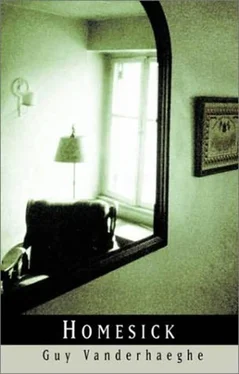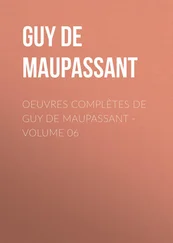Mr. Buckle turned out to be a plump, middle-aged man, sleek as a seal, whose tiny feet transported him around the room as smoothly as if he were mounted on castors. While interviewing Vera he rolled from side to side, from one buttock to the other, and flapped his thighs together whenever he supposed he’d made a witty remark. The slapping sound helped reinforce Vera’s feeling that he resembled a seal.
It soon became clear to her that Mr. Buckle was pretty full of himself. And he asked the most peculiar questions. Could she sew? When she said she could, he nodded enthusiastically. There was an inquiry about the condition of her feet. Any corns, ingrown toenails, plantar’s warts? Vera assured him that the condition of her feet was excellent. That was fine, said Mr. Buckle. An usher’s feet were as important as a soldier’s. With that, he appeared satisfied. The motive for his question about her ability to sew became apparent when Mr. Buckle passed a large paper bag across his desk top and said, “This will be your uniform, dear. It will require alteration. Agnes was somewhat more petite than yourself.”
Struggling that night to remake the uniform, Vera wondered what Mr. Buckle’s definition of petite might be. Not only did the uniform look like it belonged on an organ grinder’s monkey, it also looked like it would fit one. Mr. Buckle’s former usherette must have been a midget. Vera couldn’t see how the material could be decently stretched to cover her own long-limbed, gawky frame. Hours passed. Vera stitched madly and ripped apart what she had just stitched, made decisive chalk marks on the cloth and then indecisively rubbed them out with her thumb. She was no seamstress, just somebody who had been thimble-whacked by her mother into a modest proficiency with needle and thread. By midnight she despaired of ever putting back together what she had torn to pieces. Not only would she lose the job, she would probably have to pay Mr. Buckle for the garment she had destroyed.
All her life Vera had been a poor loser. She turned to the amputated sleeves and flopping hems with furious, tight-lipped determination. It was three-thirty in the morning when she bit off the last thread. Her task completed, she sat for a moment, massaging her aching shoulders. The thought did not occur to her that this was the first time in months that she was not the least bit tired.
She slipped into the uniform. To see herself full-length in the mirror above her dresser she clambered up on the bed and stood there unsteadily. The dusty maroon uniform consisted of a wrinkled skirt and a jacket with fringed epaulettes. Worst of all was the pillbox hat, complete with chin strap. While she balanced herself in a half-crouch, swaying on the saggy mattress, Vera examined her handiwork. The sleeves halted half an inch above her wrist-bones. The skirt rode above the hard ovals of her kneecaps. She looked ridiculous. Vera bowed her legs, crooked her arms, and swung them slowly in front of her from side to side, raised a hand, and scratched an armpit. Then she laughed. A real laugh, the first in ages. Laughed so long and so loud that the silence of the sleeping house was shattered. Mrs. Konwicki lodged a complaint with Vera in the morning.

Becoming the darling and champion of the theatre staff helped Vera recover her old self. It didn’t matter that her admirers were a pathetic collection of oddballs and misfits who accepted Buckle’s reign of terror either because they didn’t have the spine to tell him to go and take a long walk on a short pier, or because they knew they weren’t employable anywhere else except in another half-assed establishment run by a lunatic similar to Buckle. Their general incompetence made Vera feel protective, even motherly towards her fellow employees.
Frank the usher was fifty-five; a nancy boy with fluttery hands, wide-awake astonished eyes, and a habit of whispering conspiratorially everything he said. He sucked peppermints constantly because he worried about his breath, carried his comb stuck in his sock, and walked as if he were holding a ball-bearing between the cheeks of his ass and didn’t want it to fall out. Frank was a great fan of musicals and sometimes when he watched them at the back of the theatre his feet would start to shuffle rhythmically. Once Vera saw him suddenly attempt a pirouette in the dark.
Maurice the ticket-seller was in poor health and distressed by worries about losing his job because his angina pectoris was so bad that ticket-selling was just about the only job he could do. He was Mr. Buckle’s errand runner. During the summer Mr. Buckle sent him out to move the manager’s Oldsmobile from parking stall to parking stall, following shade, and in the winter he dispatched him to fire the engine of the car every two hours so that when it came time to go home Mr. Buckle would have no trouble starting it.
Then there were Amelia and Doris, the weird Wilkinson sisters, who stood side by side manning the refreshment counter. They never tired of telling how since childhood they had been inseparable. Their one goal in life seemed to be to keep their destinies linked. Although Amelia was a year older than Doris, in their uniforms they appeared to be twins. Outside the theatre they dressed in identical, matching outfits so as to strengthen that impression. Doris and Amelia liked to pretend they were twins because it made them feel out of the ordinary, special and glamorous the way the Dionne quints were special and glamorous. Their greatest fear was that the other would so anger Mr. Buckle as to get fired, leaving her sister behind, abandoned. The idea was so inconceivable, so unbearable that they had sworn a pact that if one was dismissed the other would immediately resign. However, having sworn such a rash pact, each sister began to doubt the other’s judgement in dealing with Mr. Buckle. They were continually admonishing and checking up on one another. “Doris, don’t you go giving Mr. Buckle one of your looks!” “Amelia, save your sauce for the goose!”
When Mr. Buckle first took over his duties as manager of the movie house, he deeply offended the Wilkinson sisters when he forbade them to take any unsold popcorn home to their mother as they had been doing for years, on the ground that it encouraged overpopping. Despite their outrage over the imputation they could ever be so irresponsible, Amelia and Doris cloaked their real sentiments and always smiled most charmingly, in unison, whenever Mr. Buckle crossed their paths or found himself in the vicinity of the refreshment counter.
The only member of the staff aside from Vera who showed no fear of the manager was Thomas the projectionist. Since projectionists did not come a dime a dozen Thomas was treated more respectfully by Mr. Buckle than the others were. He was distinguished in another important way. Because he did not come under the public eye he did not have to wear the theatre uniform and was exempt from Mr. Buckle’s surprise snap inspections, occasions when all uniformed personnel would be drawn up in the lobby before the doors opened to have their turn-outs scrutinized by the manager. Nothing was more resented than this. Everyone felt Mr. Buckle’s observations about their garments and personal grooming to be belittling and demeaning. Mr. Buckle seldom needed to issue a direct order about a failing in attire, a hint was enough. If, however, his hints were not acted upon, retribution was swift. The upshot could be that you found yourself detailed to pick soggy cigarette butts out of urinals for the next month.
His air when he reviewed the troops was swaggering. “Doris, I’d see to that butter spot on your jacket, if I were you. Those of us who handle food must leave an impression of immaculate cleanliness with the public. Butter spots don’t look very sanitary, do they? I’d go for a thorough dry-cleaning, if I were you, not just a touch-up with cleaning fluid. You’re due for a dry-cleaning. After all, Amelia had hers last week.”
Читать дальше













